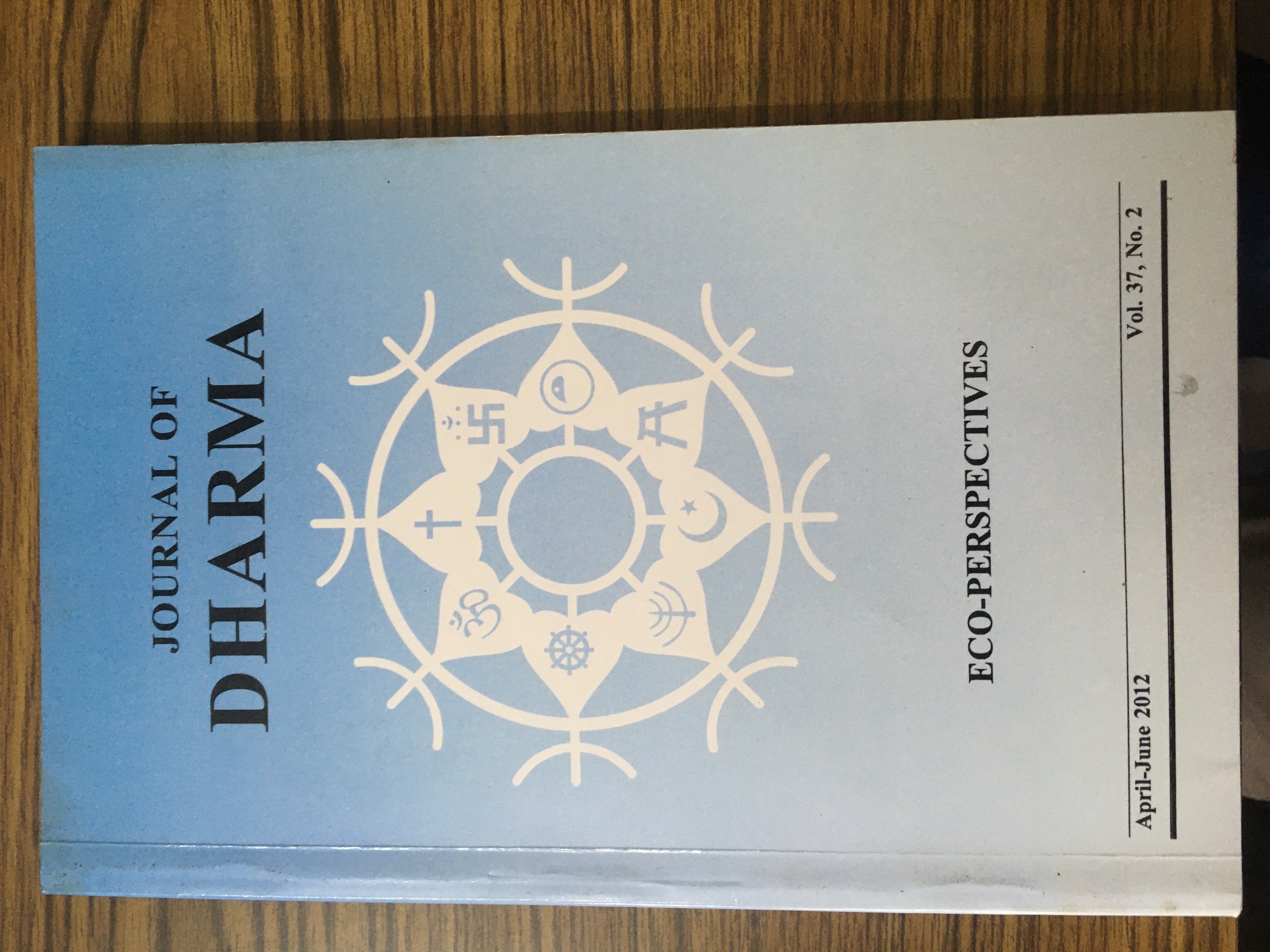EARTH, MY MOTHER! THOU ART THE SACRED VESSEL!
Keywords:
“In the Beginning!” The Great Mystery, The One Hidden in the Many, The Five Abiding Elements, Human Being: The Best of Creation, Partnership or Dominion?, Nature Is Sacred, Respect It, Non-Violence: An Ecological Ethics, Treading the Sacred Path of Deep EcologyAbstract
It is more than evident that our environment is in crisis. The Hindu Survey of the Environment 2008 states that despite several Governmental and non-Governmental organizations’ efforts, waste management and pollution control remain a big challenge and their solutions are met with little success in India:Electronic trash and biomedical refuse are ever increasing, resulting in infections and other hazards. The climatic change and the growing earth warming is a researched fact due to higher carbon emissions from human activity. Harnessing the power of the sun like in Solar Energy is becoming revolutionary in lighting the billions of life. Wetlands and water banks, which provide many services to local communities, are under threat and evidences indicate that solutions to protect coastal ecosystems are far from satisfactory. Needless to say that sustainable transport future may land us in undertaking fewer, shorter trips, greater use of public transport, number of walking and cycle trips. Problems abound on the issue of Genetically Modified crops, its health and other risk factors, conservation of forest and wild life, extinction of rare species, etc.
References
“When We Change, the World Changes,” Statement to the United Nations Conference on Environment and Development, Brahmakumaris World Spiritual University, June 1992.
http://www.bkun.org/papers/earth12.html
“Consciousness and Climate: Confluence of Two Living Systems,” Statement for the United Nations Climate Change Conference, December 7-18, 2009, Copenhagen, Denmark.
<http://www.bkun.org/papers/cop15_statement.pdf>
Bhikhu Parekh, “The Voice of Religion in Political Discourse,” Religion, Politics, and Peace, ed. Rouner Leroy S., Notre Dame: University of Notre Dame Press, 1999, 80-81.
Hanh, Thich Nhat, For a Future to Be Possible: Buddhist Ethics for Everyday Life, Berkeley: Parallax Press, 1993, 13.
J. R. Des Jardins, Environmental Ethics, Belmont: Wadsworth, 1993, 5.
L. M. Singhvi, The Jain Declaration on Nature, 2, Institute of Jainology, London, 1990.
<http://www.jainology.org/publications/jain-delaration-on-nature/>
N. Ram, The Hindu Survey of the Environment, Chennai: Kasturi & Sons, 2008.
Padmasiri de Silva, Environmental Philosophy and Ethics in Buddhism, London: Macmillan Press Limited, 1998, 17.
Vincent Sekhar, Religions, Ecology, and Environment: Sacred Texts That Shape Perspectives, Bangalore: Claretian Publications, 2012; and Wilson Andrew, ed., World Scripture: A Comparative Anthology of Sacred Texts, Delhi: Motilal Banarsidass Publishers, 1993.

